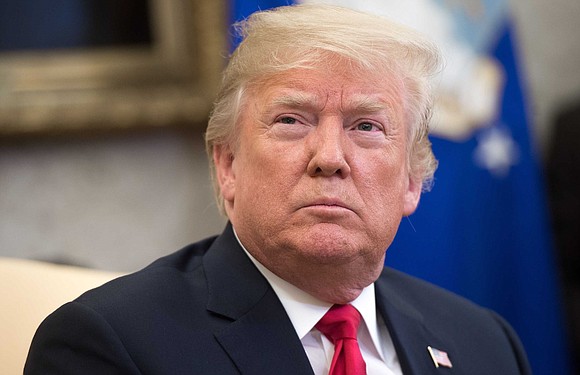Trump warns countries against doing business with Iran as sanctions kick back in
CNN/Stylemagazine.com Newswire | 8/7/2018, 7:48 a.m.
By Sheena McKenzie, CNN
(CNN) -- President Donald Trump has warned that countries doing business with Iran will "NOT be doing business with the United States" as his administration reimposed sanctions on Iran Tuesday.
In an early morning tweet, Trump described the measures as "the most biting sanctions ever" and warned they would "ratchet up to yet another level" in November, when US sanctions on Iranian oil will be reimposed.
"I am asking for WORLD PEACE, nothing less!" Trump added.
Trump's warning appeared to be aimed at the European Union, which is attempting to protect European businesses trading in Iran from facing US sanctions.
US sanctions are being unilaterally reimposed on Iran in waves following Trump's decision to withdraw from the Iranian nuclear deal earlier this year.
The deal, officially titled the Joint Comprehensive Plan of Action, or JCPOA, is a landmark agreement to restrict Iran's nuclear program in return for the lifting of international sanctions.
Orchestrated by the Obama administration, it was signed by Iran, some European countries, China and Russia in 2015.
Trump has long been a fierce critic of the deal, calling it "insane" and maintaining that, even with the current restrictions in place, Iran continues to pose a threat to the US.
In May, the US pulled out of the deal, with the first round of sanctions reimposed on Tuesday. They affect, among other things, the purchase or acquisition of US dollars by the Iranian government, the country's auto industry and trade in gold or precious metals.
The second phase of US sanctions will come into effect in November and will target Iran's crucial oil industry.
Europe moves to shield businesses
On Monday, the European Commission and the three European nations who negotiated the Iran deal -- France, Germany and the UK -- said they deeply regretted the reimposition of sanctions and would continue to honor the agreement with Iran.
In a joint statement, the European powers said the agreement to curtain Iran's nuclear program was "working and delivering on its goal," and that they were determined to "protect EU companies doing legitimate business with Iran from the impact of US extra-territorial sanctions."
Several international companies have already pulled out of Iran amid growing uncertainty over whether they would face US sanctions for doing business in the country.
Rouhani floats talks with US
Iranian President Hassan Rouhani described the sanctions as "pyschological warfare" on Monday but said Iran was willing to hold talks with the US to resolve the matter.
"I don't have preconditions. If the US government is willing, let's start right now," Rouhani said during an interview that aired on state television late Monday local time, just hours before the US renewed sanctions on Iran. "If there is sincerity, Iran has always welcomed dialogue and negotiations."
The Iranian President also indicated that Iran would want the US to scale back sanctions before any talks could begin.
Trump's national security adviser John Bolton, when asked about the offer by CNN's Jake Tapper on "The Lead" Monday, dismissed it as possible "propaganda."
"If the Iranians are really willing to come and talk about all of their malign behavior in the region and around the world, I think they'd find the President willing to do it," Bolton said.
Sanctions come at delicate time for Iran
The collapse of the rial since Trump announced the US would pull out of the nuclear deal has already wreaked havoc on the average Iranian, and the first wave of sanctions will likely hit the vulnerable economy harder than most are currently anticipating.
Unemployment is shooting up, especially among the country's youth, inflation is spiraling higher because of the cost of imported goods, and there have been water and power shortages due to a lack infrastructure investment after years of on-again, off-again sanctions.
Added to this are sporadic protests in the capital Tehran and throughout the country that started late last year and have persisted ahead of the return of the sanctions.




